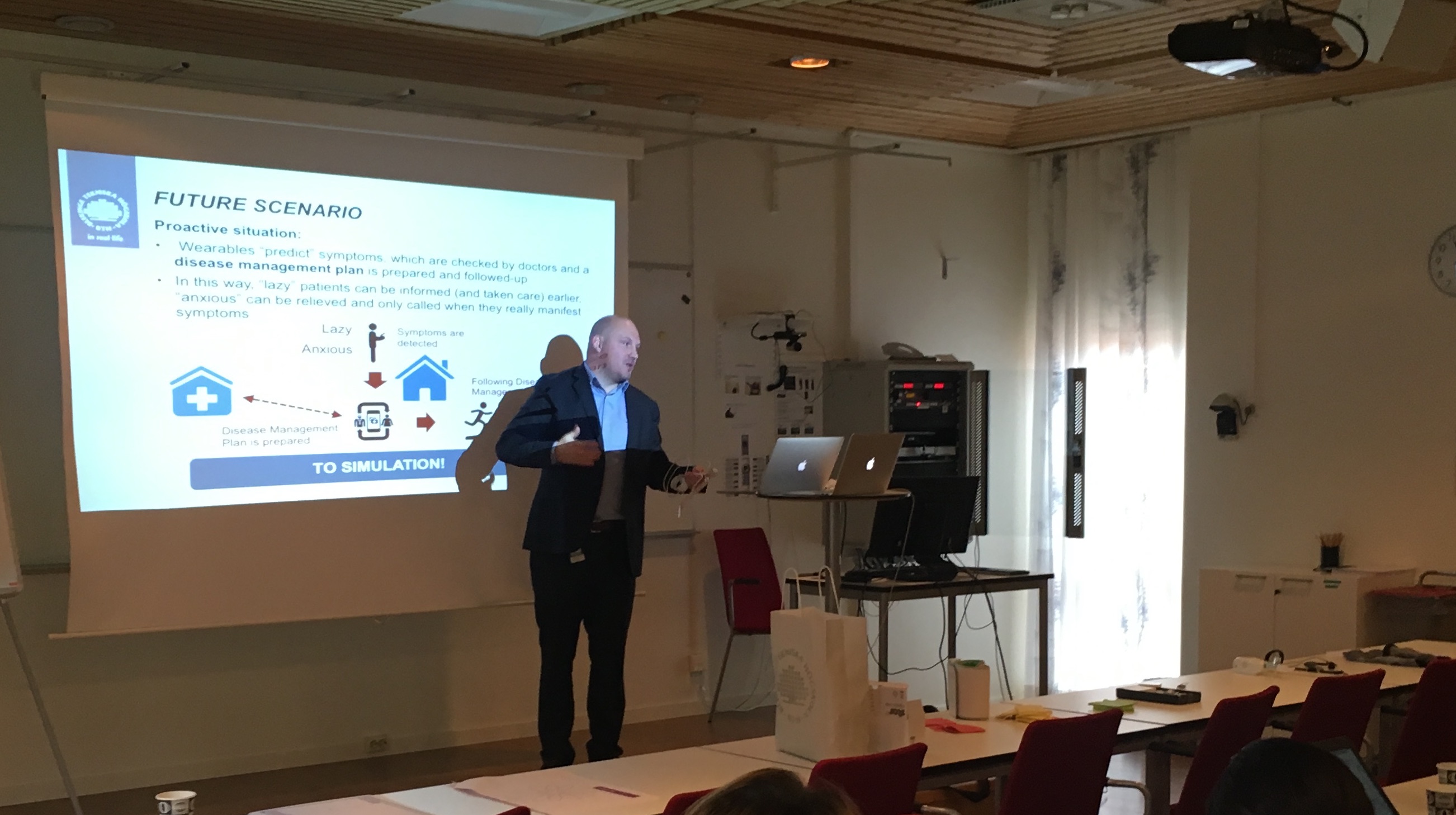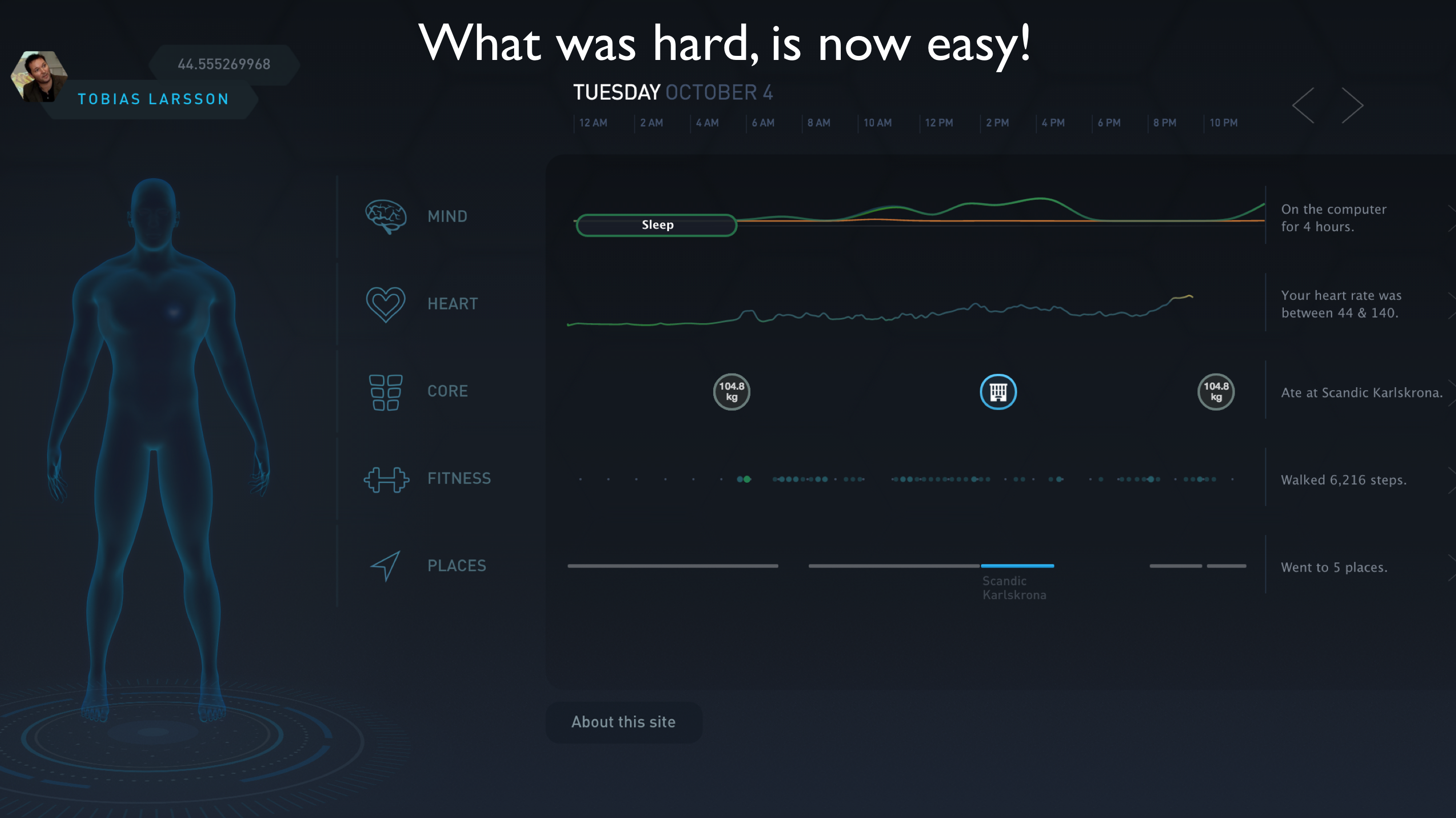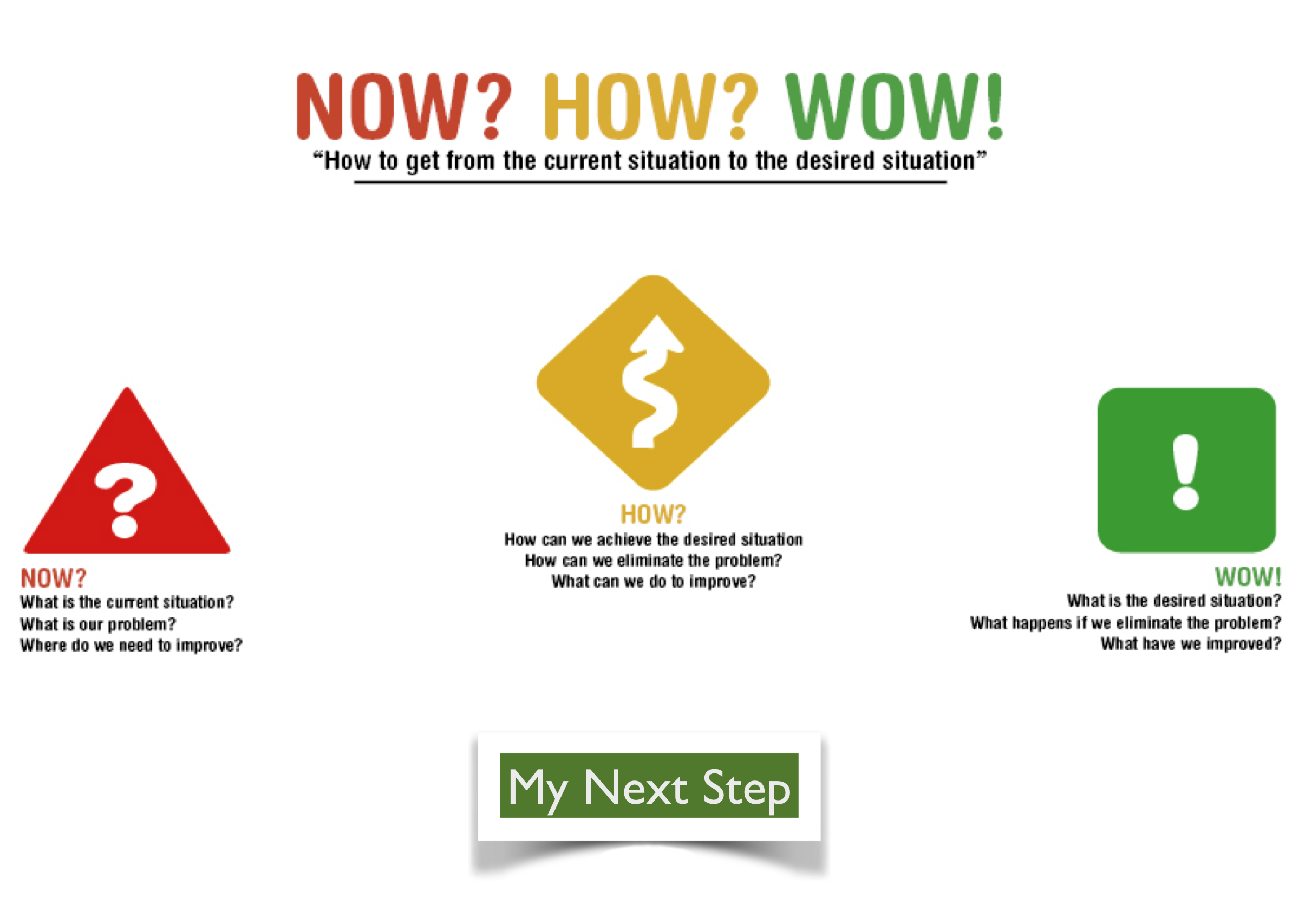
Radical Innovation Workshop; Applied healthcare and wearables
- Post by: Tobias Larsson
- 28th October 2016
- No Comment
Globally, healthcare is under great pressure as the population increases; we live longer. In 2020 there will be more than 7.6 billion people. If the trend continues, a large percentage have problems with health. More than 30 percent of the world population are exercising too little, 20 percent are overweight and 13 percent are 60 years or older.
Sweden’s health care system is considered one of the best in the world and ranks high globally. But we live in a changing society with new needs and where also our ageing population and the rise of chronic diseases are driving the cost in an increasing pace, accelerating away from revenues. To meet the new needs efficiently and with quality health care must be more efficient and patient-centered.
The shift to a digital, and even virtual health care, has the potential to not only modernize the health care system, but also improve the quality and accessibility for all. To cope with the shift to virtual care, it is important that the authorities, county councils and municipalities the ability to cooperate is strengthened, it also applies to cooperation with the various sectors and interest groups. In addition, it is important to have an openness to new actors that can contribute to innovation and development of the health system. In the increasing global digitization patients will not be bound to the local hospital or a single health care professionals – they will be more enlightened than before, have higher expectations and new demands.
A number of technologies have great opportunity to support health care transformation;
- Portable technology (wearables, mobile phones, etc.)
- Large-scale analysis of data (big data analytics), and distributed such (cloud analytics)
- Autonomous decision making through machine learning (autonomy, machine learning, artificial intelligence)
This was the framing around a workshop in Applied Health Technology with County Council of Blekinge (Landstinget Blekinge) and Blekinge Institute of Technology.

Facilitators Tobias Larsson and Massimo Panarotto guided through an inspirational session on what is technically possible, and then workshop groups went through a Now – How – Wow process to arrive at conceptual solutions.

The outcome will be further elaborated on as potential research and collaboration projects.
